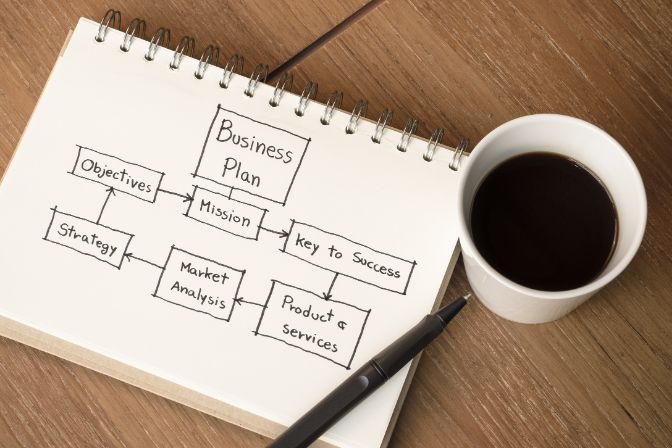
Business, General Tips, Your Event Career
The Best Tools To Grow Your Event Planning Business
If you’re looking to start or grow a business as an event planner, you’re in luck! There are a number of great tools out there that can help you do just that. In this article, we’ll discuss 25 of the best tools to grow your event planning business and find success in this exciting industry.
In particular, we’ll look at software tools, business tools, and on-the-job supplies that’ll help you reach your goals. So, whether you’re just starting out or you’ve been in the business for a while, these tools will help you take your career to the next level!
PRO TIP: Is event planning your DREAM job? Then make sure you check out our Ultimate Guide to becoming an event planner – even if you don’t have any experience!
Frequently Asked Questions
Before we delve in, let’s first answer some common questions about the professional world of event planning…
“How Do You Build a Successful Event Planning Business?”
The best way to build a successful event planning business is to start by finding your niche. Once you know what type of events you want to specialize in, you can begin marketing your services to businesses and individuals who plan those types of events.
In addition to finding your niche, having proper certification training – such as that provided by QC Event School – will also give you a competitive edge in the industry. Plus, professional training will give YOU the confidence needed to put yourself out there, set the right service rates, and market yourself correctly to clients.
From there, we also recommend joining relevant professional organizations and creating a strong portfolio of your previous work. This will give potential customers an idea of your event planning capabilities, and help them decide if you’re the right fit for their needs.
Finally, but just as importantly, always make sure you’re staying up-to-date on industry trends. Read industry news, search trending industry hashtags, and network with other event planners. The more you know about the business, the better equipped you’ll be to succeed in it!
Interested in learning about QC Event School’s self-paced, online certification programs? Here’s the full list!
“How Do I Make My Event Planning Company Stand Out?”
In order to make your event planning business stand out, you need to focus on creating a unique brand identity. This includes everything from your company name and logo to your website design and the way you market yourself online.
Your goal should be to create a brand that is recognizable and memorable, so that potential customers will think of you when they need event planning services. In addition, having a strong online presence is essential in today’s digital world. Make sure your website is up-to-date and that you’re actively using social media to promote your business.
PRO TIP: Become a master of branding with the help of this informative blog article!
Finally, always provide top-notch customer service! This means being responsive to client inquiries, following through on promises, and going above and beyond to ensure that every event is a success.
By following these tips, you’ll be well on your way to making your event planning company stand out from the rest!
“How Do Event Planners Grow?”
The best way for event planners to grow is by continuing to educate themselves and build their experience. The event planning industry is always changing, so it’s important to stay up-to-date on the latest trends.
One way to do this is by attending industry conferences and workshops. These events are a great way to network with other professionals, learn about new trends, and get inspired for your own business.
In addition, consider furthering your education by adding additional qualifications/certifications to your resume. For instance, you could choose to take a Corporate Event Planning Course, a Destination Wedding Planning Course, or an Event Decor Course. Furthering your skill-set and professional credentials will not only make you more qualified for jobs; it’ll also make you that much more competitive and attractive to clients!
Finally, remember that experience is key! The more events you plan, the better equipped you’ll be to handle any challenges that come your way.
By following these tips, you can be sure that you’re on the right track to growing your event planning business!
Essential Tools To Start an Event Planning Business
Okay, now it’s time to look at the various tools you’ll need to grow your event planning business. Let’s begin by breaking down the must-have tools you’ll need to start this venture in the first place!
1. A Business Plan
The first thing you’ll need is a business plan. This document will outline your overall goals and strategies, as well as how you plan on achieving them. Without a business plan, it’ll be very difficult to make your event planning business successful. Moreover, if you intend to get financial assistance from a bank, they’re going to require this business plan as well.
Never written a business plan before?
No worries! Just make sure that it covers the following key information:
- Your executive summary
- A general description of your event planning business
- Market analysis research
- Your sales/marketing plan
- An operational plan
- A brief overview of your management team
- Financial plan and goals
If you need help getting started, there are all sorts of free templates and guidebooks available online. All you need to do is a quick Google search and you should be able to find everything you need!
2. Insurance for Your Event Planning Business
Another must-have is business insurance! This will protect you in the event of any accidents, injuries, or damages that occur during your clients’ celebrations.
There are a variety of different policies that you can choose from. Therefore, be sure to do your research so you can find one that’s right for your business.
For example, general liability insurance will cover any third-party injuries that occur in your office, on your property, etc. Since you’ll more than likely be doing a fair share of off-site work, you might also want to consider getting additional coverage like professional liability insurance.
At the end of the day no matter what type of policy you decide on, just make sure that it offers enough protection for your needs!
3. A Registered Business Name
Before you can start legally operating your event planning business, you’ll first need to register it with the government. One major perk to registering your business name is that no one else will be able to use it for their company. It’ll belong to you and you alone!
The process of registering a business name involves coming up with a name for your company (that isn’t already in use) and then filing the appropriate paperwork. Don’t worry, this process is relatively simple and straightforward! Just be sure to check with your local government office for the specific requirements in your area of residence.
Need help coming up with the right name for your event planning business? Discover the Top 5 rules to picking the PERFECT name!
4. A Laptop and/or Smart Phone
Literally every event planner needs a laptop and/or smart phone. These devices will be essential for keeping track of your events, communicating with clients, managing your finances, etc. Not to mention, you’ll need to be reachable – especially in the weeks (and days) leading up to your client’s event!
Nowadays, there are all sorts of great laptops and smartphones on the market that won’t break the bank. So if you don’t have one already, be sure to do some comparison shopping until you find the perfect device for your needs!
5. A Business Website
In today’s day and age, it’s absolutely essential to have a strong online presence for your event planning business… And one of the best ways to do this is by creating an official business website!
Now, your website doesn’t need to be fancy or complicated. That said, it should include all the basic information about your company – such as your contact info, services offered, prices, online booking, etc. If you’ve never created a website on your own, there are countless resources and guides available online. This guide by Business News Daily is a terrific example.
Alternately, if you have the budget for it, you can also choose to hire a web designer to create the site for you. Just make sure to set aside the appropriate amount of time and money for this important task!
6. Your Professional Event Planning Portfolio
When you’re first starting out in the events industry, it’s important to build up a strong portfolio of your work. This will show prospective clients what you’re capable of – as well as help them decide if you’re the right planner for their needs. If you’ve never organized any paid events before, one way you can begin developing your portfolio is by putting together a stylized photoshoot with other professionals in your area!
Your portfolio can include things like day-of photos, client testimonials, behind-the-scenes videos, etc. If you have any previous experience working as an event planner, be sure to include that as well!
Ultimately, building up a strong portfolio takes time and effort. But it will be worth it in the long run when you start booking clients left and right!
Did you know that QC Event School’s online Accelerate Your Business Workshop offers an entire unit devoted to helping you start (and build) your portfolio? It’s true – and it’s one of the many reasons why this course is so popular!
7. Business Cards
Another important marketing tool when starting up your event planning business are business cards. These can be handed out to potential clients, left at local businesses, distributed at networking events, or simply given to anyone who expresses interest in your services.
Your business card should include your name, your professional title, the name of your event planning business, the link to your website, and your contact information. Nowadays, many businessowners also include their social media handle on platforms like Facebook and Instagram on their cards. Additionally, you can also include a brief tagline or slogan on your card – something that succinctly sums up what you do and why you’re the best at it!
There are a myriad of online printing companies that offer affordable business card printing services. All we recommend is making sure that you order enough cards for all your marketing needs!
8. Social Media Accounts
In today’s digital age, it’s important to have a strong social media presence for your event planning business. As a result, you’ll be able to reach a wider audience and connect with potential clients from all over the world!
These days, some of the most popular social media platforms for businesses include Facebook, Twitter, TikTok, LinkedIn, YouTube, and Instagram. Of course, there are plenty of other options out there as well! So, look around and see which one(s) would make the most sense for your business.
Furthermore, be sure to populate your social media accounts with high-quality content on a regular basis. This would include photos, videos, blog posts, etc. By doing this, you’ll show potential clients that you’re serious about your business. Plus, it’ll help you attract more followers, too!
Software To Grow Your Event Planning Business
Next, let’s talk about some software tools that can help you grow your company. Everything we’re about to list are just some of the options at your disposal – so, just keep that in mind!
1. Asana
Asana is a project management software that can help you keep track of all your clients, tasks, and appointments in one place. This type of software can be hugely helpful when you’re trying to stay organized and on top of your business… Which, of course, event planners are always doing!
Another perk to Asana is that they offer a free version that should be more than enough for most small businesses!
That said, if you’re looking for an alternative to Asana, we also recommend Trello or Basecamp.
2. Eventbrite
Eventbrite is a software that allows you to create and manage events – both online and offline. You can use this tool to do things like promote your business, sell tickets, and track RSVPs.
Additionally, Eventbrite also has a built-in payment processing system so that you can accept payments for your services easily and efficiently. The best part? They don’t charge any transaction fees!
Of course, there are other event management software options on the market – so, feel free to explore until you find one that works best for you and your business.
3. Mailchimp
Mailchimp is a tool that helps you create and send newsletters, email campaigns, and other marketing materials – thereby allowing you to stay in touch with your clients and promote your business at the same time! They also offer a free plan for small businesses, so be sure to take advantage of that.
Alternatives to Mailchimp include (but aren’t limited to) Constant Contact or Sendinblue.
4. QuickBooks
QuickBooks is an accounting software that helps you manage your finances, invoices, and expenses. When it comes to tracking your income and expenses, this type of software will be your best friend! It’s also particularly useful for small businesses that don’t necessary have the budget to hire a personal accountant to do this type of work for them.
QuickBooks offers a free trial, so you have the flexibility of giving their services a try before committing to a paid plan. An alternate option for accounting software would be FreshBooks.
5. Whova
Fun fact: this all-in-one event management software has won the People’s Choice Award and Best Event App Award at the Event Technology Awards! Thanks to this app, you can track and manage your clients’ events from beginning to end – all in one place!
Some of the features that Whova offers include online registration, event check-in, networking, surveys, and more. The best part? All of these features are available in their free plan!
Other popular types of event management software include Cvent and Hubilo.
6. Boomset
Boomset is another all-in-one event management software that helps you with everything from online registration to onsite check-in. We’re highlighting this tool because importantly, it can help you create custom badges, track your attendees, and even manage your exhibitors!
And, like many of the other software options we’ve mentioned, Boomset also has a free plan available for small businesses.
7. Zoom Events
These days, hybrid and/or virtual events are all the rage! Zoom Events is a tool that can help you manage and execute these types of events flawlessly.
Some of the features that Zoom Events offers include live streaming, webinars, chat rooms, and breakout sessions. Plus, their platform is super user-friendly and easy to navigate – which is always a bonus!
Zoom Events has a free plan available for small businesses. However, if you’re looking for an alternative to Zoom, we also recommend Webex or Google Meet.
8. Wix
Many sources – such as Superb Website Builders, for instance – claim that Wix is the BEST website builder for events and event planners. The platform is super user-friendly, offers tons of event website templates and designs to choose from, and has powerful (yet easy-to-use) features.
What’s not to love?
Of course, Wix isn’t the only website builder on the market. So, if you’re not sold on Wix, be sure to also check out Weebly, WordPress, or Squarespace.
Must-Have Supplies and Tools To Grow Your Event Planning Business
Lastly, let’s take look at the items you’ll need in order to actually do your job as a professional event planner. After all, you can’t put together your clients’ functions and celebrations without the proper supplies!
1. A Good Planner
The planner is, without a doubt, the event planner’s best friend. In this book, you’ll record all of your to-dos, meeting notes, client information, and more. And trust us – you’re going to want to have a physical (or digital) copy of this at all times!
Popular planners for event planners include The Happy Planner by Me & My Big Ideas and The Bullet Journal Method by Ryder Carroll. Alternatives to The Happy Planner and The Bullet Journal Method include The Passion Planner and The Best Self Co.’s SELF Journal.
Of course, you can also use a regular ole’ notebook as your planner – it’s really up to you!
2. A Checklist (or Two)
Checklists are event planners’ BFFs. With these sheets of paper (or digital documents), you can ensure that nothing falls through the cracks and that your clients’ events go off without a hitch!
Some popular checklist items include tasks such as ordering supplies, sending out invitations, following up with vendors, and creating a timeline for the event itself.
You can find pre-made checklists online or – if you’re feeling extra organized – you can create your own.
Feel free to download this complimentary sample event planner checklist (for a 6-month timeline) here!
3. A Day-Of Event Kit
A day-of event kit is a must for any professional event planner. This kit should be packed with everything you might need on the big day, such as:
- Band-aids
- Safety pins
- Bobby pins
- Tide To-Go pens
- Pain relievers
- A comfy pair of shoes
- Deodorant
- A portable phone charger
- Hair ties
- Floss
- Breath mints
- A flash drive
- Sunscreen
- Protein bars and/or other snacks
- Client and/or guest experience surveys
- And more
Essentially, this kit should include everything YOU’LL need (or potentially) need on the big day.
4. An Emergency Kit
On the other hand, you should also come prepared with items that others might need in case of an emergency on the big day – such as your client(s), their guests, or vendors. Some items to include in your emergency kit are:
- A First-Aid kit
- Bug spray
- Tissues
- Makeup wipes
- Backup makeup supplies, such as mascara
- Hand sanitizer
- A sewing kit
- Double-sided tape
- Gaffer’s tape
- Safety scissors
- Female sanitary products
- An extra phone charger and/or batteries
- And more.
This blog article offers a complete checklist of items to buy for your emergency kit!
5. A List of Contacts and Their Information
As an event planner, you’ll be working with a lot of different people – from caterers and florists to venues and rental companies. Because of this, it’s important to have a list of your industry contacts and their corresponding information (such as email addresses, phone numbers, etc.) on-hand at all times.
This way, if you ever need to get in touch with someone last-minute, on the day of, or if you’re trying to find a new vendor for an upcoming event, you’ll have all of the information you need right at your fingertips. For this reason, it’s also a smart idea to include your client – as well as any immediate friends or family members of theirs that are part of the event – on this list as well.
A good way to keep track of your industry contacts is by using a CRM (customer relationship management) system such as Eventbrite Spectrum or HubSpot Sales CRM.
6. The Day-Of Timeline
Next, every event planner needs a timeline for the big day! This document should include a minute-by-minute breakdown of the events taking place, as well as when and where they’re happening. Furthermore, the timeline should also include contact information for all vendors involved in the event (see above), in case anyone needs to be reached last-minute.
Make sure to print out more than one copy of this timeline. After all, the last thing you want is to accidentally misplace your only copy… And then be running around like a fish out of water!
Never put together a day-of timeline before? Not a problem! You can find pre-made templates for timelines online. We also offer this free wedding day template that you can download right now! Alternately, if you’re feeling extra organized, you can create your own.
7. Client Surveys
Client surveys are yet another critical tool for any event planner. Surveys help you to understand what your clients liked and didn’t like about your services, as well as what they thought of the overall event itself. What’s more, client feedback can also give you some great ideas for how to improve your business!
There are a few different ways that you can collect client feedback. For example, you can send out post-event surveys via email or physical mail. You can also include survey forms in your day-of event kits (mentioned above), or hand them out at the end of the event itself.
Once you’ve collected all of the surveys, take some time to sit down and really read through them carefully. From there, use what you’ve learned to make changes to your business – whether that means making some tweaks to the way you operate or completely overhauling your services!
8. Patience
Undoubtedly, one of the most important tools an event planner can have in their arsenal is patience. Things will inevitably go wrong on the big day – that’s just a fact of life. The key is to stay calm and be patient with yourself, your client(s), and all other involved parties.
Remember: things always seem worse in the moment than they actually are. As long as you’re prepared, you’ll be able to handle anything that gets thrown your way!
9. A Positive Attitude
Last but not least, having a positive attitude is arguably THE most important trait for any event planner to have. After all, your clients will already be prone to stress when it comes to their upcoming event. They are not looking to hire a planner who will add to that, rather than lessen the load.
Not to mention, clients won’t want to recommend or re-book with an event planner who makes a bad impression.
If you want to be successful as an event planner, you need to be able to maintain a good attitude, even when things are tough. Remember: every day is a new opportunity to learn and grow – both as a planner and as a person.
Conclusion
Well, there you have it! These are just some of the essential tools that every event planner needs to have.
Of course, there are plenty of other important factors that contribute to success in this field (such as experience, knowledge, etc.). However, we believe that the 25 tools discussed in this article are absolutely essential for any planner who wants to build a successful business!
So, what do you think? Do YOU have what it takes to become a successful event planner?
Let us know in the comments below… And best of luck on your journey!






I am a Eveent & Planner who is looking to take my business to the next level.
Thank you for sharing this information in order for to move forward forward on my next goal of opening a Venue.
Hi Dejay, thanks so much for commenting! <3 We're glad that you found this list of the best tools to grow your event planning business so informative and helpful. Out of curiosity, which tool listed here intrigues you the most? We'd love to hear your thoughts! <3
All the best,
The QC Team